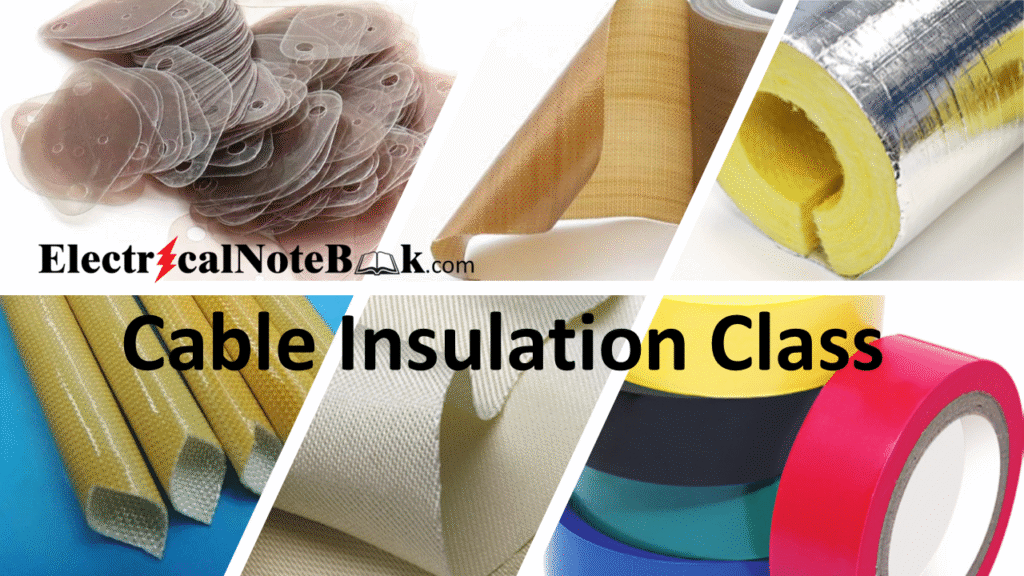Insulation class is a thermal classification system used in Electrical Engineering Materials to indicate the maximum temperature that the insulation material in an electrical device (like a motor, transformer, or generator) can safely withstand for its expected service life without excessive deterioration.
International standards like IEC 60085 and NEMA MG-1 assign insulation classes (Y, A, E, B, F, H, C), each with a maximum temperature limit.
| Insulation Class | Temperature (°C) | Materials | Application |
| Class Y | 90 °C | Cotton, Silk, Paper, Wood without impregnation | Table fans, Sewing machines, Small desk gadgets, Small relay, Radio Coils, Mainly old appliances |
| Class A | 105 °C | Cotton, Silk, Paper, Wood with impregnation | Mixer grinders, Washing machines, Refrigerators |
| Class E | 120 °C | Wire, Enamel | Fractional HP motors Fans, Blowers, Small compressors, Pumps |
| Class B | 130 °C | Mica, Asbestos, Glass Fiber with suitable clothing | Transformers, Motor, Generator, Alternator |
| Class F | 155 °C | Mica, Asbestos, Glass Fiber with suitable clothing | Traction Motor, HVAC Induction Motor, Power Tools |
| Class H | 180 °C | Combination of Mica+ Asbestos+ Glass Fiber | Jet engines, Avionics, Marine propulsion motors, Mining machinery & motors |
| Class C | >180 °C | Alumina, Porcelain Quartz glass, Teflon (PTFE), Silica-based composites Mineral insulation | Heating elements, Furnace winding, Aerospace and military electrical systems, Wiring in environments >200 °C (e.g., MI cables) |
Views: 4

